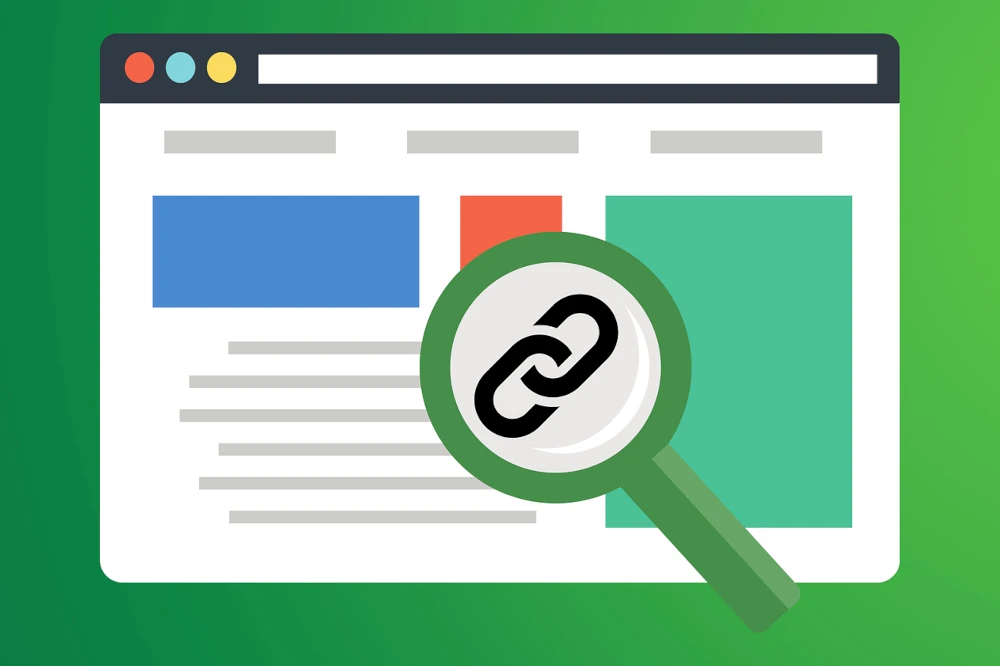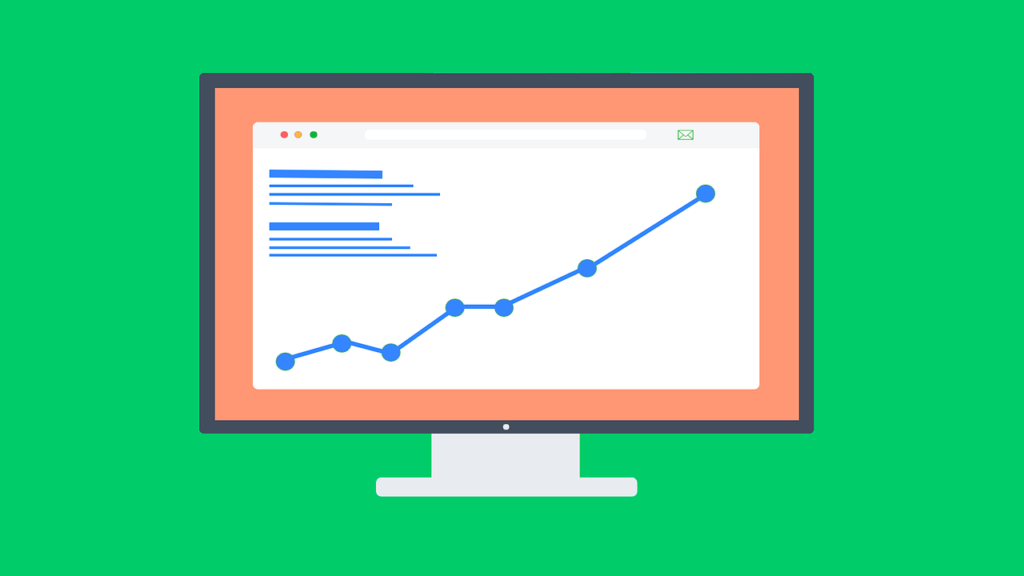Let’s get one thing straight. SEO isn’t about stuffing keywords or tricking Google anymore. Yes, the game has changed. Now, it’s about building real trust. And if you want Google to trust your site? You need backlinks. I mean real ones. The kind that say, “Hey, this content is actually worth looking at.” But let’s be honest, backlinks are one of those SEO terms that get thrown around like confetti, and half the time, people don’t explain what they actually mean. Or worse, they talk about them like they’re magic beans.
In this article, I’ll show you a real backlink example and break down how it impacts SEO performance, plain and simple. All of it with Zero fluff, zero hype, and zero AI tone. Just straightforward info.

Backlink Example and Its SEO Impact (Explained Simply)
What Is a Backlink?
Forget the jargon for a second. It is simply when one website links to another. That’s it. So, a backlink is a hyperlink from another website that points to your page; essentially, a signal of credibility and trust. You write a killer blog. Someone reads it, loves it, and links to it from their own site. Boom backlink. Google sees that link and thinks, “Hmm, let’s see here, if others are pointing here, it must be worth something.” So what I am trying to say here is that the more relevant and trustworthy the website linking to you is, the more weight that backlink carries. It’s kind of like if someone is vouching for you in front of a whole new crowd. One nod from the right person? Congratulations, you just hit gold.
Some Actual Backlink Examples
Alright, let’s say you run a local travel blog. You wrote a detailed guide to “Hidden Beaches in Cornwall.” Now, imagine a major UK travel site like Time Out runs an article on best coastal getaways, and they link to your Cornwall guide as a recommended read.
Is that link from Time Out for your blog? That’s a backlink.
But it’s not just any backlink. It’s from a reputable source, in the same niche, pointing to a page that’s clearly relevant.
And to Google? That’s SEO juice. Your blog post now gets a little more authority. A little more visibility. And maybe, a little more traffic.
That’s the power of a real backlink. Plus, here are a few more examples for you so you can get a good picture.
Example 1
Let’s say someone writes an article on their blog called:
“The Top 10 Local SEO Tips for Small Businesses in Manchester”
In that article, they say:
“If you’re serious about boosting your visibility, having a solid backlink strategy is a must. This guide on how backlinks impact SEO performance breaks it down brilliantly.”
That linked text, “this guide on how backlinks impact SEO performance,” is called anchor text. It’s clickable. It points to another website (in this case, yours). And that, right there, is a backlink.
Example 2
“While planning my solo trip through Scotland, I stumbled across this ultimate guide to underrated Scottish islands, and it completely changed my route.”
Why it works:
It’s relevant, embedded naturally in the story, and adds value for readers.
Why Google Cares About Backlinks
Here’s why backlinks matter in plain English. Google’s trying to figure out which pages are worth showing. And it can’t read every page like a human. So it looks for signals. Backlinks are one of those signals. They act like a vote of confidence.
But not all votes are equal. A link from Forbes? That’s like a judge standing up and clapping. A link from your cousin’s blog that gets five visits a month? Kind, but not really SEO gold. The more respected the site that links to you, and the more relevant it is to your content, the stronger that signal becomes.
How a Backlink Can Make or Break Your SEO Performance

Backlinks can move the needle. Fast. Especially if:
- The website linking to you has a high domain authority.
- The content linking to yours is relevant and up-to-date.
- Your page is strong to begin with (i.e., good content that deserves links)
Just one solid high-quality backlink from a trusted site can push your page higher in search results. A bunch of weak, spammy ones? That could actually hurt you. Google’s no fool. It’s seen all the shady backlink games before. So yes, backlinks impact SEO performance. But it’s a quality-over-quantity game now.
Do All Backlinks Help? (Spoiler: Nope)
Here’s where it gets interesting. There are good backlinks and bad backlinks.
Good Backlinks
- Come from reputable sites.
- They are placed naturally within relevant content.
- Make sense to the reader.
- Aren’t paid for (or at least clearly marked if they are)
Bad Backlinks
- Come from sketchy, spam-filled sites.
- They are dumped in random comment sections.
- Come from link farms (Google sees through those in a second)
- They are bought in bulk with zero context.
Google wants to see natural, relevant linking. Anything that looks like manipulation? Risky business.
Natural Ways to Earn Backlinks
So, how do you actually get backlinks that move the needle? Not by begging or buying, but by earning them.
Here’s how:
1. Create Content People Actually Want to Link To
Obvious? Maybe. But most content online is boring or thin. If you write something that solves a problem, shares new data, or tells a compelling story, it gets noticed and helps to boost your website authority.
2. Guest Blogging (Done Right)
No, not the spammy kind. Offer to write a real article for a site in your niche. Add value. Include a link back to your site where it makes sense.
3. Be Quoted as a Source
Use platforms like HARO to provide expert quotes to journalists. If they publish your quote, you usually get a backlink.
4. Get Local Love
Run a business? Partner with local organisations, charities, or events, and make sure they link to you when they mention your brand.
5. Create Resources Worth Bookmarking
Think of tools, templates, guides, or data that others in your industry will want to reference. These links keep giving long after you publish.
What to Avoid: Dodgy Link Building Tactics
There’s a dark side to backlinks. And while it used to work, it doesn’t anymore.
Avoid:
- Buying backlinks in bulk from shady marketplaces.
- Joining link exchanges (“You link to me, I’ll link to you”)
- Dropping links in forums or comments just to build backlinks.
- Spinning articles and submitting them everywhere with backlinks jammed in.
Google’s algorithm is sharp. It’ll catch on. And when it does? You’re not just ignored, you’re penalised.
If you’re outsourcing, make sure you’re choosing the right white label link building service to avoid shady tactics.
How to Track Your Backlink Impact Without Going Crazy
You don’t need to be an SEO wizard to keep tabs on your backlinks. But it helps to track what’s working.
Here’s what to use:
- Ahrefs / SEMrush / Moz: These give deeper insights, like link authority, anchor text, and whether the links are dofollow or nofollow.
- Simple checks: Just search “link:[your domain]” on Google to get a quick look (not comprehensive, but fun to try).
- Google Search Console: Shows you which domains are linking to your site and what pages they’re hitting.
Want to learn how to check your backlink profile the smart way? Here’s a guide to using Google Search Console.
- Log in to Google Search Console.
- Choose the property (your website) you want to check.
- On the left menu, click on “Links.”
- Under “Top linking sites,” you’ll see which domains are linking to your site.
- Under “Top linked pages,” you’ll see which of your pages have the most backlinks.
- Click “More” to see full reports, export data, or analyze anchor text.
Track what’s earning you links. Double down on that. And if something feels off, investigate.
Final Thoughts: It’s Not About Gaming the System and About Earning Trust
At the end of the day, backlinks aren’t a trick. They’re a signal. A vote. A nudge from the internet saying, “This is worth your time. The best ones come when you’ve earned them by writing something good, saying something new, or helping someone solve a problem. Don’t obsess over quantity. Focus on being the kind of site people want to link to.
That’s not just good SEO, it’s good content. And Google notices.
FAQs
How many backlinks do I need?
There’s no magic number. Ten great backlinks from trusted sites are better than 100 garbage ones.
Can I rank without backlinks?
Maybe for very low-competition keywords. But for anything meaningful? You’ll need them eventually.
Are social media links backlinks?
Technically, yes, but they’re usually nofollow, so they don’t pass SEO value. Still useful for visibility, though.


